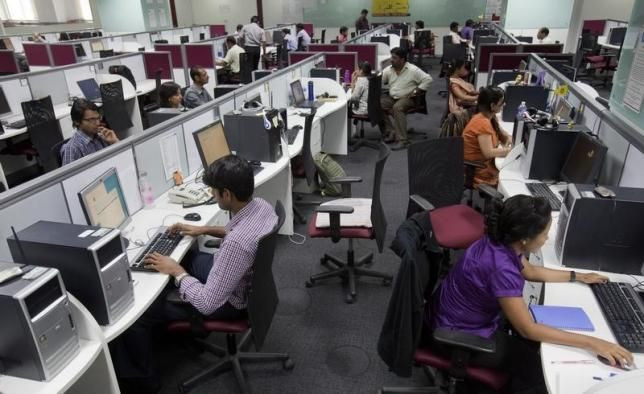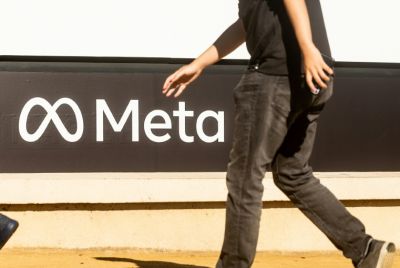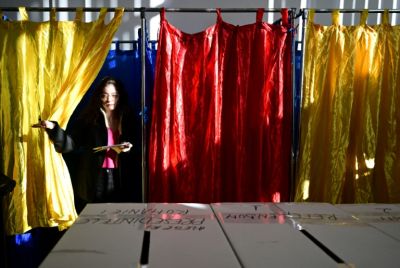IT Outsourcing Firm Cognizant Raises Revenue, Profit Forecast After Strong 1Q On Higher US Healthcare Business

IT services outsourcing firm Cognizant Technology Solutions Corp. said Monday that higher demand from U.S. healthcare and financial services clients helped boost its first-quarter revenue by 20 percent compared to the same period last year. The Teaneck, N.J., company, which relies heavily on the U.S. H-1B visa guest worker program, also raised its forecast for 2015 revenue and profit.
“The clients we serve are experiencing tremendous change in their businesses,” Cognizant CEO Francisco D’Souza said in a statement. The company’s share price (NASDAQ:CTSH) leaped 6.27 percent to $62.85 in pre-market trading.
The company said revenue from U.S. healthcare clients leaped 43 percent, to $879.1 million, in the first quarter ended March 31. Sales from financial services clients increased 13.4 percent to $1.16 billion. Demand for outsourcing services from healthcare providers and financial services, including insurance companies, make up about 70 percent of Cognizant’s revenue.
Cognizant shares closed up 6.15 percent to $62.78 on Monday on the better than expected results. The company's share price is up over 19 percent since the start of the year.
The company offers outsourcing IT and business processing services, including offshoring work to India and using the U.S. H-1B visa program to bring foreign IT workers to the U.S. Critics have said the flood of bachelor’s-degree level Indian IT workers in the U.S. is driving down wages and pushing Americans away from a once-lucrative profession.
Proponents of the use of foreign IT guest workers, including the U.S. Chamber of Commerce, argue there aren’t enough Americans to fill the demand from employers.
The IT outsourcing industry has largely taken over the U.S. H-1B visa program, which was originally designed to bring in foreign workers with highly specialized skills, such as professors or engineers with advanced degrees. But the program has since evolved as a way for U.S. companies to lower their labor costs using foreign guest workers with non-advanced degrees.
Silicon Valley tech giants -- who are more likely to hire advanced-degree holders and provide paths to citizenship for them -- have complained they can’t get enough foreign workers because of the flood of demand from outsourcing firms that flood the systems with H-1B visa petitions. Facebook founder Mark Zuckerberg helped launch FWD.us, a nonprofit group that advocates increasing the annual quota of 85,000 H-1B visas (including 20,000 reserved for advanced degree holders).
Cognizant itself recognizes the controversial nature of its business, citing U.S. immigration policy as a risk to its future profitability.
“Immigration and work permit laws and regulations can be significantly affected by political forces and levels of economic activity,” the company said in its 2014 annual report. “Our international expansion strategy and our business, results of operations, and financial condition may be materially adversely affected if changes in immigration and work permit laws and regulations … impair our ability to staff projects with professionals who are not citizens of the country where the work is to be performed.”
Cognizant claims it actively recruits from U.S. universities but it also says “the vast majority” of its workers in the U.S. and Europe are Indian nationals on temporary gest worker visas. The company employed 171,400 workers worldwide at the end of 2013, including 31,500 in the Americas and 6,900 in Europe. Most of the workers in the Americas are based in the U.S. Last year, North Carolina gave Cognizant, a Fortune 500 company, a $5 million incentive package to open a new business center there. Cognizant
Cognizant reported a 9.7 percent rise in profit, to $382.9 million. Earnings per share increased to 62 cents from 57 cents. Revenue increased to $2.91 billion from $2.42 billion. The company beat analysts’ expectations. On an adjusted basis, the company earned 71 cents per share, above an average estimate of 70 cents per share, according to analysts polled by Thomson Reuters, who expected revenue to increase to $2.89 billion.
© Copyright IBTimes 2024. All rights reserved.






















